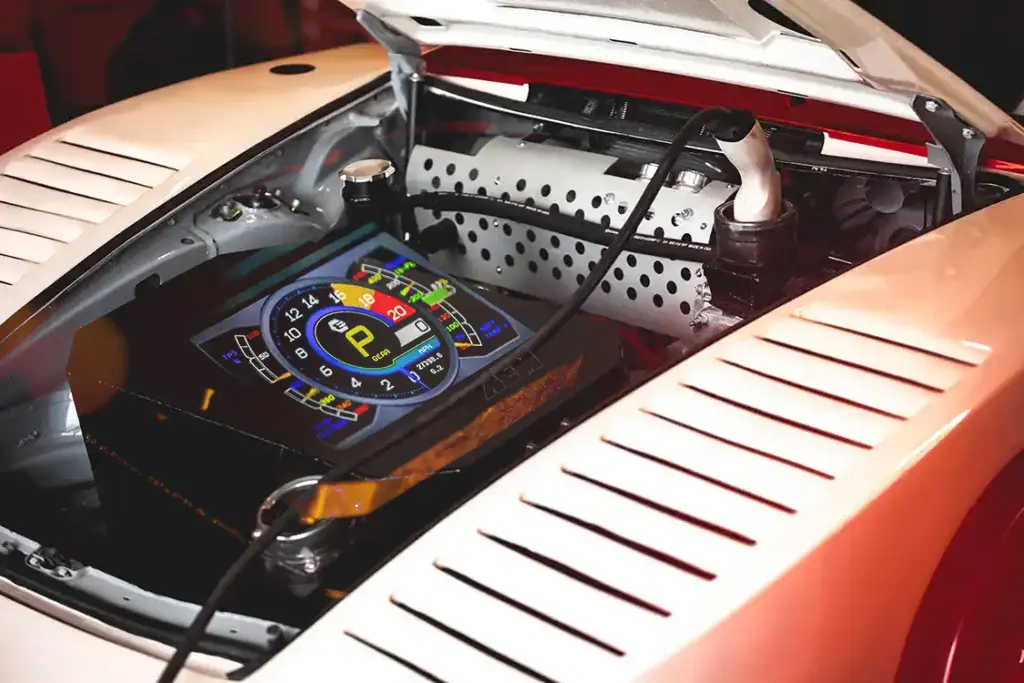Electric Vehicles, AI Diagnostics, and the Garage That Learns as You Work

Walk into a modern auto shop today, and you’ll notice something’s changed. It’s not just the tools on the walls or the cars in the bays. It’s the pace, the technology, the expectations. Customers no longer settle for long waits or vague updates. With every passing day, cars are evolving, and shops must evolve with them.
Electric vehicles, like the Audi S1 Hoonitron, are rolling in faster than many owners anticipated. AI-powered diagnostics are uncovering problems in seconds that once took hours. And digital tools are turning garages into smarter, more responsive businesses.
You know what type of shops are thriving in such a technologically-dominant space? The ones who have discarded the ‘we have always done it this way’ mindset. These are the shops that are embracing the innovative and highly efficient garage culture that grows you and grows with you.
EVs: The New Learning Curve
For decades, shops could rely on predictable revenue from combustion engines. Oil changes, tune-ups, exhaust repairs, these bread-and-butter jobs kept bays full and bills paid.
But EVs don’t need oil changes. They don’t need timing belt replacements. Their parts wear differently, and their repair needs follow a new rhythm.
This doesn’t mean fewer opportunities. It means a different opportunity.
Battery diagnostics, high-voltage system checks, and advanced calibration are becoming the services that separate skilled shops from outdated ones. Shops that invest in EV training and equipment now will win customers for the next 20 years. Those that don’t will slowly lose repeat business and will watch revenue slip away.
AI Diagnostics: From Guesswork to Precision
Every owner knows the frustration of trial-and-error diagnostics. Because a single customer complaint leads to:
- Hours under the hood
- Multiple tests
- Wrong guesses (occasionally)
This is not just time wasting; this is a loss of trust and companionship between customers and you.
AI-driven diagnostic systems are rewriting this story. By processing thousands of data points from sensors, these tools identify issues faster and with more accuracy. They don’t replace technicians. They empower them. What used to take two hours can now take ten minutes, freeing up bays for more jobs and boosting overall efficiency.
Think of it this way: customers aren’t just paying for repairs. They’re paying for confidence. When your shop can deliver precise answers and quick turnarounds, loyalty follows.
The Garage That Learns
Technology is not just modifying cars. It’s also changing the shops themselves. Today’s most competitive garages operate almost like living systems. They track patterns, adapt to demand, and get smarter over time.
For example, scheduling software that learns from past jobs can predict how long a repair will take based on technician history. Inventory systems can anticipate which parts are about to run low. Even customer engagement tools can remind clients of upcoming maintenance before they think to call.
This shift turns a reactive business into a proactive one. Instead of scrambling to fix problems, shops start preventing them. And that’s where real efficiency and profitability live.
Why Digital Foundations Matter
All this technology, EV service, AI diagnostics, and adaptive workflows rely on a solid digital foundation. Without it, tools don’t talk to each other, and efficiency breaks down.
That’s why many owners are investing in auto garage management software to tie everything together. These platforms centralize repair orders, scheduling, billing, and inventory in one system. The benefit isn’t just organization, it’s digital intelligence.
When your data lives in one place, patterns emerge. You can spot:
- Which services generate the most revenue
- Which customers return most often
- Where bottlenecks cost you time
That knowledge powers smarter decisions, from hiring to stocking to marketing. In short, it transforms a garage from a busy shop into a scalable business.
Industry Insights You Can’t Ignore
The shift is no longer theoretical. It’s already happening. Industry reports show:
- EV sales grew by more than 30% year-over-year, and adoption is accelerating.
- Shops using AI-driven diagnostic tools report up to 40% faster turnaround times.
- Businesses that adopt integrated management platforms see measurable gains in revenue per bay.
These aren’t small margins. They’re survival margins. The data shows a clear divide between shops that adapt and shops that stagnate.
Moving From Hesitation to Action
It’s easy to hesitate. Training is expensive. New tools require learning curves. And the pace of change feels overwhelming.
But waiting carries its own risks. Competitors who adopt faster capture market share, and customers notice the difference.
The smartest move isn’t to chase every shiny tool. It’s to start with the foundation. Build a digital backbone for your garage. From there, add capabilities that align with your market: EV servicing, AI diagnostics, and customer engagement automation.
Piece by piece, your shop becomes smarter, leaner, and more profitable.
Wrapping It Up
The future of auto repair won’t look like the past. EVs are reshaping services. AI is rewriting diagnostics. And smart systems are teaching garages how to run better every day. The question is no longer if shops should adapt, but how quickly.
A garage that learns as you work isn’t a dream; it’s the new standard. Owners who embrace it will find themselves ahead of the curve, delivering speed, accuracy, and confidence that customers can’t find elsewhere. Those who don’t may still feel busy, but they’ll quietly fall behind.
Your shop doesn’t just need tools and technicians anymore. It needs intelligence. And once you build it, the results will speak louder than any ad campaign or promotion. In this industry, the future belongs to the garages that learn.


